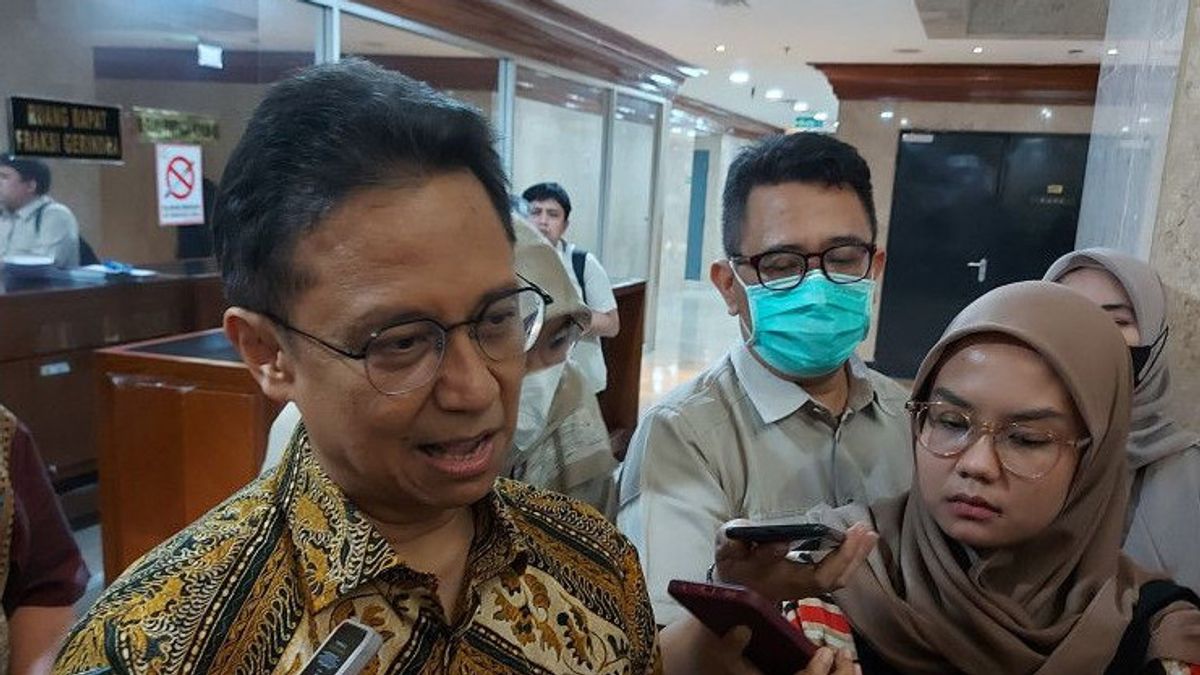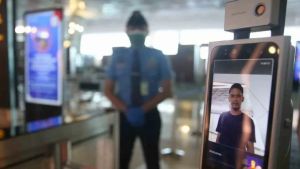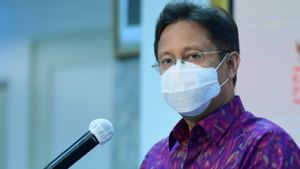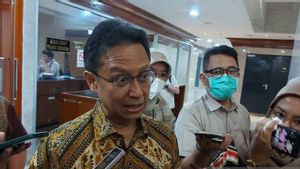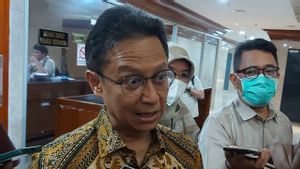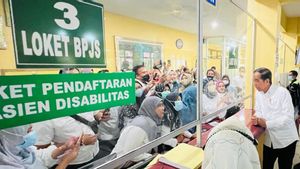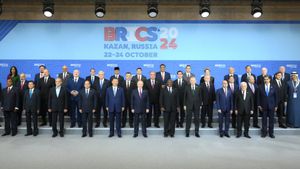JAKARTA - Indonesian Health Minister Budi Gunadi Sadikin said the Health Bill opened up opportunities for Indonesia to catch up with biotechnology services in the Indonesian medical world. "Malaysia has been doing this program since 2004, Singapore even earlier. Many developed countries have aggressively implemented programs like this because they understand that," said Budi Gunadi Sadikin, followed by ANTARA, Tuesday, June 20. He said the latest developments on health technology had Give birth to biotechnology that allows people to know up to the most detailed level about the causes of the disease they are experiencing. The launch of the Biomedical & Genome Science Initiative (BGSi) at the Eijkman Building at Dr. Cipto Mangunkusumo (RSCM), Jakarta, on August 14, 2022, marked the birth of biotechnology services in the country. BGSi is the first national initiative program created by Minister of Health Budi Gunadi Sadikin to develop a more precise treatment for the community. The trick, by relying on genetic information collection technology (genomes) from humans and pathogens such as viruses and bacteria or referred to as Whole Genome Sequensing (WGS). "In the past, public health was examined using a stethoscope, after that the conclusion of the illness was taken. Now it is different, it is very certain, because individuals who are sick can have different medicines," he said. Biotechnology services are listed in the Chapter XI Health Bill article 356-365 with JAKARTA - Minister of Health of the Republic of Indonesia Budi Gunadi Sadikin said the Health Bill opened up opportunities for Indonesia to catch up with biotechnology services in the Indonesian medical world. "Malaysia has been doing this program since 2004, Singapore is even earlier. Many developed countries have aggressively implemented programs like this because they understand that," said Budi Gunadi Sadikin in Jakarta, Tuesday. He said the latest development of health technology has given birth to biotechnology that allows the public know to the most detailed level about the causes of the disease they are experiencing. The launch of the Biomedical & Genome Science Initiative (BGSi) at the Eijkman Building at RSUPN Dr. Cipto Mangunkusumo (RSCM), Jakarta, on August 14, 2022, marked the birth of biotechnology services in the country. BGSi is the first national initiative program created by Minister of Health Budi Gunadi Sadikin to develop a more precise treatment for the community. You do this by relying on technology collection genetic information (genomes) from humans and pathogens such as viruses and bacteria or referred to as Whole Genome Sequensing (WGS). "In the past, public health was examined using a stethoscope, after that a conclusion was taken what the pain was. Now it's different, it's very certain, because each individual if he is sick can have different medicines," he said. Biotechnology services are listed in the Chapter XI Health Bill article 356-365 with a topic of health technology aimed at helping enforce the diagnosis, Prevention, and handling of human health problems. Budi said Indonesia is blessed with extraordinary biodiversity and biodiversity. On the West side, flora and fauna follow Asian biodiversity. On the east side, said Budi, Indonesia has genomic-based flora and fauna in Australia. "In the midst we have a mixture of both," he said. Budi said the wealth of biodiversity and the existing genomic diversity determined Indonesia to be one of the producers from medicines based on biotechnology in the future. "We know, our country's wealth is there. In fact, because it is not regulated, many foreign companies say they have genomic services, finally all our service data (genogenic data) reaches abroad, because it is not regulated," he said. Budi said the Health Bill also regulates the patient's genomic data protection scheme to anticipate leakage. "Regarding the data must be protected, the government must definitely do that. "In fact, with this data, there is a systematic strengthening of biogennomic data in Indonesia," he said.
另请阅读:
Budi added that Indonesia has been lagging behind for decades in developing science as an important support for the progress of the medical world in Indonesia. "Don't let it fall behind again, because we are anti-science. This is very necessary to maintain the health of our people," he said.
The English, Chinese, Japanese, Arabic, and French versions are automatically generated by the AI. So there may still be inaccuracies in translating, please always see Indonesian as our main language. (system supported by DigitalSiber.id)
